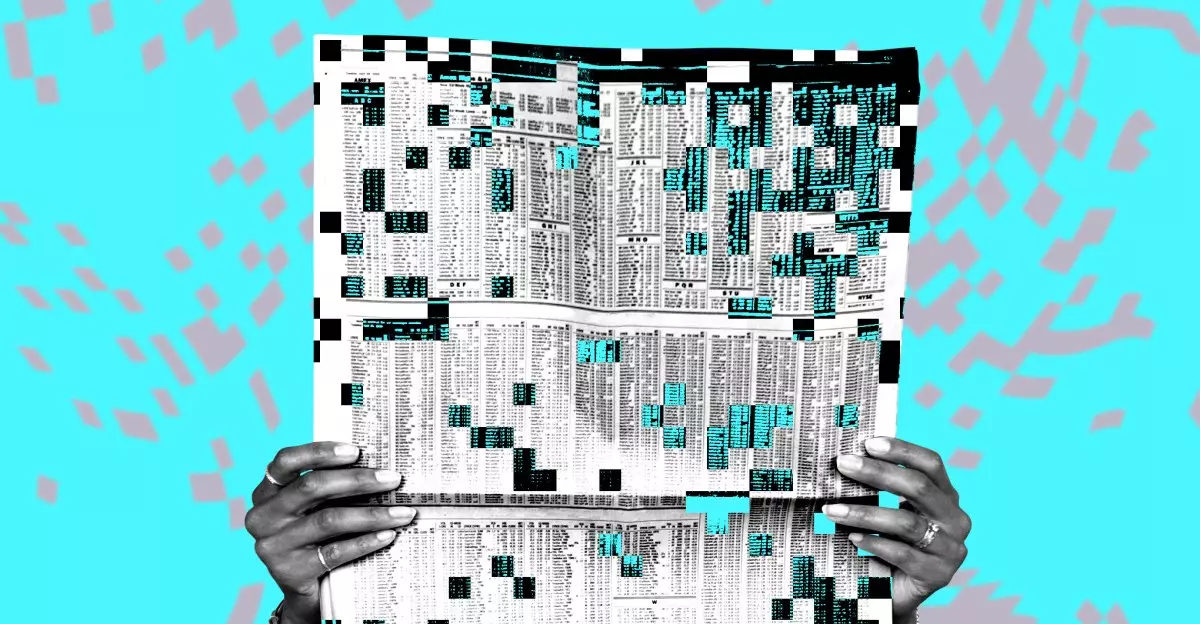The rapid evolution of Artificial Intelligence (AI) technologies has sparked fierce debates across multiple industries, most notably the media. Recently, a coalition of publishers in the United States has converged to launch a provocative ad campaign labeled “Support Responsible AI.” This initiative underscores a significant concern: the exploitation of original content by major tech firms. With this movement, publishers aim not just to draw attention but to advocate for a systemic change in how AI interacts with intellectual property rights.
Voices of Concern: Powerful Publisher Participation
A striking array of influential publishers, including renowned entities like The New York Times and The Guardian, have aligned themselves under the “Support Responsible AI” banner. This underlines a collective urgency felt within the media sector—a response to an alarming trend where AI companies are allegedly appropriating content without proper authorization or compensation. Their ads make a poignant statement: phrases such as “Stop AI Theft” highlight a sentiment felt by many creators who invest time, energy, and creativity into their work.
The focus on government action is not coincidental. With AI companies like OpenAI and Google pushing for legislative leeway to utilize copyrighted material for model training, the stakes have escalated. Publishers are no longer passive bystanders; they are demanding accountability and advocating for a framework that requires fair compensation from tech giants.
A Call for Action: Engaging the Public
The campaign cleverly employs both digital and print media to promote its message, enabling widespread engagement. QR codes and links not only provide information about the issues at stake but also empower individuals to take action by contacting their local representatives. This approach reflects a strategic choice to mobilize public support, emphasizing that the struggle for intellectual property rights is not merely an insider concern but a matter that impacts everyone who consumes content.
Danielle Coffey, the President and CEO of the News/Media Alliance, articulates the shared essence of this movement: the objective to create a balanced ecosystem where AI development respects the rights of original content creators. It is essential to acknowledge that the media industry does not harbor an anti-AI stance; rather, they advocate for responsible advancements in AI technology. This desire for balance and fairness resonates widely, as the conversation around AI increasingly encompasses ethical considerations.
Global Parallels: Lessons from the UK
Interestingly, this movement in the United States has echoes in the UK, where major newspapers previously rallied under a similar campaign. Their “MAKE IT FAIR” initiative serves as a precedent, demonstrating that this is not merely a localized phenomenon but a global concern within the media landscape. The parallels drawn between the two campaigns signal an emerging consensus across geographical boundaries: that there must be a concerted effort to protect the integrity of content in the face of relentless technological advancement.
As the debate intensifies and more stakeholders become involved, the urgent question remains: How will the relationship between AI companies and content creators evolve? The need for unwavering advocacy towards protecting creative integrity in the digital age is paramount. In this evolving landscape, it becomes increasingly clear that standing up for rightful compensation is not just about defending economic interests; it is about preserving the very essence of creativity itself.

